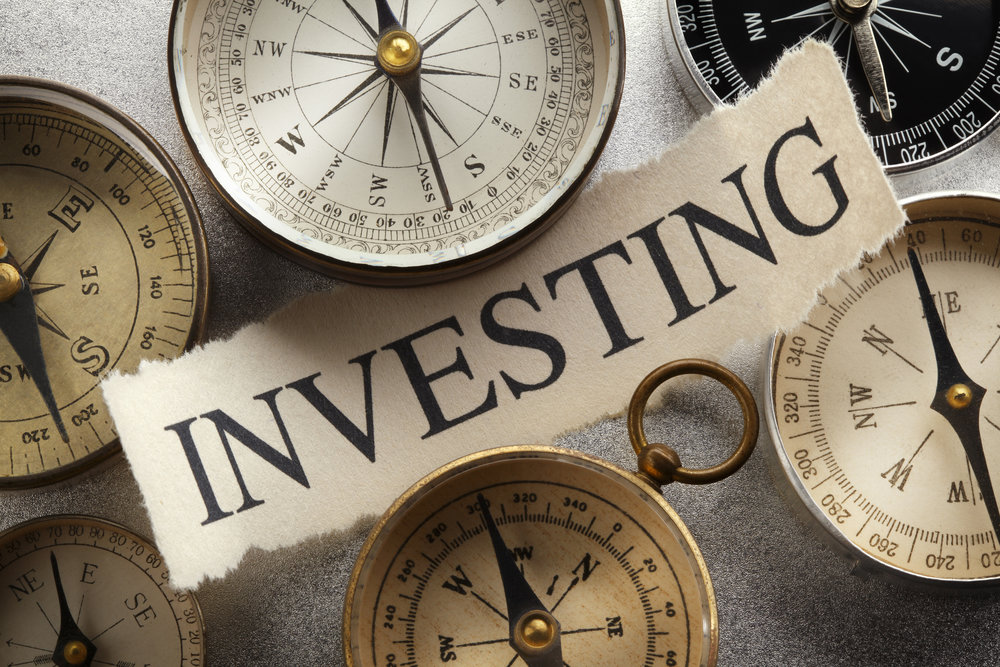For almost 12 years we have provided the world’s most recognized companies with the tools to unleash the power in their brands. We unleash this power by providing their customers and employees with exceptional experiences that create deep brand engagement and lasting connections. We do this through a strategic and synergistic combination of companies, providing a diverse offering of products and services, all designed and delivered with a passion for innovation, service, and value. We measure our success by the success of our customers – when our customers are successful, we are successful, generating opportunity and prosperity for our employees and shareholders across the globe.
- Strong history of organic growth
- Long history of accretive acquisitions
- Consistent payment of annual dividends since 2012
- Growth and market share expansion opportunities maximized by leveraging national platform, synergistic businesses and prestigious brands.
- Diverse market focus and product offering provides more diversified revenue and earnings stream
- Ongoing reinvestment in business to deliver long-term shareholder return
- Strong financial performance and reliable cash flow generation
- Successfully leveraging company scale through a shared services model
- Highly experienced management team
Basic Investor Relations Policy:
Under the direction of our management, and in line with the Basic Investor Relations Policy expressed below, Abbasi Group’s IR team promotes dialogue with its shareholders and investors as an essential aspect of corporate value. Our commitment to open communication both ensures accountability to our stakeholders, and plays an important role in growing our corporate value over the medium to long term.
Disclosure Policy
- i) Disclosure of Material Information
Abbasi Group discloses company’s information as appropriate in a transparent and timely manner.
Important information is defined as corporate information that must be disclosed in a timely manner under the Acts when important matters concerning the Company or its subsidiaries are determined or when an important event occurs, and other corporate information requiring timely disclosure under the Acts.
- ii) Voluntary Disclosure
Abbasi Group also discloses general corporate information other than material information, when we deem it may have a material impact on the investment decisions of our shareholders and investors, as rapidly and transparently as possible.
Disclosure Methods
To ensure our fair disclosure to shareholders and investors, group information is disclosed via the methods stipulated by Abbasi Group. Additionally, all such information is promptly posted on our corporate website.
Information falling outside the scope of material information is disclosed via news releases on web and our quarterly information meetings, and is also posted on our website. We reserve the right not to respond to enquiries regarding certain information related to competitiveness or privileged information that the Abbasi Group has a duty to protect.
Forward-Looking Statements
Communication Structure
Comprehensive Communication
Incorporation of Feedback Through Dialogue
Management of Insider Information and Fairness in Disclosure
Quiet Periods
Analyst Reports
Market Rumors
Five things to consider before you start investing
You shouldn’t think about investing money if doing so means risking the clothes off your back, or the roof over your head. The money you use for your investments should never come from the pot earmarked for paying the mortgage, or other essential household bills.Many of us don’t keep a close track of our incomings and outgoings. But you can’t begin to work out how much money you can afford to put aside for investments until you are fully on top of exactly what’s coming in to your bank account, what’s leaving it and where this money is going.
- Put your money through a financial audit
Undertaking a full audit of your personal finances may not be the most exciting way to spend your time, but it’s well worth doing. Not only will it give you a clear view of the real state of your finances, but you may also identify areas where you can make savings.Start by making a list of all your income. This will include your salary, any freelance fees, income from existing investments, interest from savings, as well as grants, pensions, benefits and any financial support relatives might provide. Make a note of when you receive this income and whether this is weekly, monthly, quarterly or annually.Your next step should be to go through your bank statements and add up all your regular outgoings. It’s worth going back a few months in case there are payments that don’t go out every month. And, it’s a good idea to review direct debits and standing orders coming out of your account at the same time, as you may be paying for things you no longer need or use, such as magazine subscriptions or gym membership.Once you’ve listed all your outgoings, divide your expenditure into essential and non-essential categories, and look at ways you might be able to reduce your outgoings. For example, could you switch to a cheaper gas or electricity supplier, or might you be able to do without a landline if you usually rely on your mobile?The savings you make by reviewing these outgoings could be the start of your fund for investments. - Neither a borrower nor a lender be
A key part of any personal finance audit will be to add up the accumulated debt on all your credit cards and work out how you can pay it off. If you want investments to become a way of making and earning money, you should try to pay off your debts first. The same resolve should be applied to any personal loans you’ve taken out. Debt of this kind can be a millstone around your neck preventing you from starting out as an investor. Borrowing to invest or investing to borrow can be a fast road to financial ruin. Don’t do either. - Rainy days and Mondays emergency account
The money you set aside for investing should never be money that doubles up as an emergency savings fund. Investment money should be held over a long-term period – think at least five years as a minimum.You should, therefore, have some savings kept separate which are immediately accessible to pay unexpected bills – for example, if you need to fix a leaky roof, or take an emergency flight to visit a sick relative. Establishing an emergency or rainy-day fund must be a priority before you start investing.Once such a fund has been built up, you can be confident that there won’t be a call on the money you have set aside for investments. - Shore up the right levels of protection
The financial audit process should also reveal where there are any gaps in your finances. For many this will be adequate insurance that would ease the financial strain if something goes wrong. Consider, for example, the financial impact on your family if the breadwinner lost their job, became too ill to work, suffered an accident, or if there was an unexpected death in the family. Have you got the right life insurance in place to protect you financially should the worst happen? What about income replacement cover if there’s a prolonged break in employment? - The kind of advice worth its weight in gold?
Sound professional advice can be just the right input you need to work through your financial audit and steer you towards an action plan. A professional adviser will be able to point out what’s missing from your financial plans, and help you identify financial goals and how your investments may achieve them.Many investors feel confident enough to make their own decisions, but remember you don’t have to engage a professional adviser for your entire investing life. For some, expert input at the outset may be all it takes to get them going, while others may feel more comfortable receiving regular advice. Remember, too, whether you take advice or not, the investments you hold can fall in value as well as rise; you may get back less than you invest.
10 Golden rules for investors:
Investing doesn’t need to be complicated or difficult, but there are a few golden rules which may help you stay on track so hopefully you can meet your financial objectives.
Bear in mind though, that however disciplined you are, and whichever rules you follow, investing involves risk, and you may still get back less than you put in.
Here’s our rundown of the 10 rules that every investor needs to know:
- Set yourself goals
Knowing what your financial goals are and what sort of timeframe you are investing over may help you stick to your strategy. For example, if you have long-terms goals, perhaps saving for retirement which may be several decades away, you may be less tempted to dip into your investments before you stop work.
- The bigger the potential returns, the higher the level of risk
The prospect of higher returns may be appealing, but there’s usually a greater risk of losing your money. Think carefully about your approach to risk. You may be more comfortable opting for less risky investments, even if returns are likely to be lower. Remember though, that no investment comes without risk, and there is always the chance you could get back less than you put in.
- Don’t put all your eggs in one basket
We all know the saying ‘don’t put all your eggs in one basket’, but it’s particularly important to apply this rule when investing. Spreading your money across a range of different types of assets and geographical areas means you won’t be depending too heavily on one kind of investment or region. That means if one of them performs badly, hopefully some of your other investments might make up for these losses, although there are no guarantees.
- Invest for the long-term
Investing should never be considered a ‘get rich quick’ scheme. You need to remain invested for at least five years, but preferably much longer to give your investments the best chance of providing the returns you’re hoping for. Even then you must be comfortable accepting the risk that you could get less than you put in. If your investment goals are short-term, for example, two or three years away, investing won’t be right for you, as you’ll need to keep your money readily accessible, usually in a savings account.
- If it seems too good to be true, it usually will be
Beware highly speculative investments that seem too good to be true, and don’t follow the herd and invest just because other people are. For example, many investors piled into digital currency Bitcoin in the latter half of 2017 as its price surged, only to see its value halve in a month. In mid-December 2017, Bitcoin was trading at nearly $20,000, but it fell below $10,000 by mid-January 2018.
- Never invest in anything you don’t understand
Before you put your money into any investment, take time to research it thoroughly, so you understand exactly what’s involved and what the risks are. Funds, for example, issue a Key Investor Information Document (KIID), or Key Information Document (KID), which explains the fund’s key features and charges. You must read this before you invest. If you’re investing in individual businesses, make sure you know what the company does and how it plans to make money in future.
- Factor in charges
Charges will have an impact on your overall returns, so it’s important to take these into consideration when choosing your investments. For example, if buying funds, the Ongoing Charges Figure (OCF) is set out on the KIID/KID and provides the clearest picture of your actual costs. This figure includes the fund’s Annual Management Charge, and also the other main ongoing costs that were deducted from the fund the previous year. When you place a purchase instruction we will also present to you other costs of the fund which the manager does not include in the OCF. You should consider these costs carefully – for example, if a fund returns 4% and the OCF and other charges have previously come to 2%, your profit would have reduced to 2%.
- Reinvesting income can help boost overall returns
If you don’t need an income from your investments, you may want to consider reinvesting it to buy more of your investment which will potentially grow in value and boost your overall returns. In simple terms, your returns also earn returns, which is known as compounding. Bear in mind, however, that reinvesting income rather than taking it as cash means you could lose it or see its value fall. If any income you receive is reinvested automatically – for example, if you invest in shares directly and have signed up for automatic dividend reinvestment (ADR) – you also won’t be able to choose the price at which you’ll be buying any additional shares, so it could be low or high.
- Don’t try to time the market
In an ideal world, you’d be able to buy investments just before they increase in value and sell before they fall. However, no-one knows which way stock markets will move next, so trying to predict market ups and downs could mean that you end up buying or selling at just the wrong time. Buying and holding investments can help you remain committed to your investments for the long term, avoiding panic decisions when markets are volatile.
- Review your portfolio
Although too much tinkering with your investments isn’t usually a good idea, that doesn’t mean you should just forget about them. Your investments will change in value over time which may mean your asset allocation – how you choose to split your money between different assets, such as shares, bonds, cash and property – moves out of line with your investment objectives. That means you may need to rebalance your portfolio from time to time to make sure you’re still on track to meet your goals.













